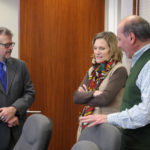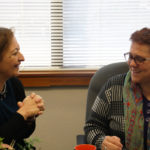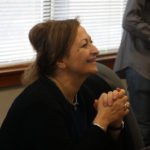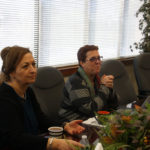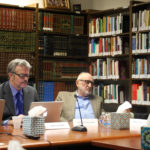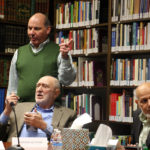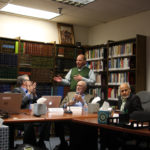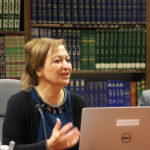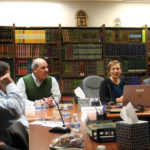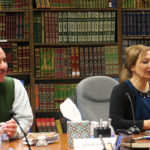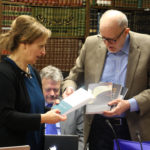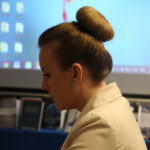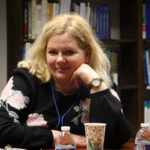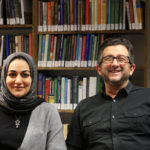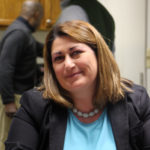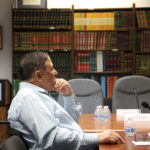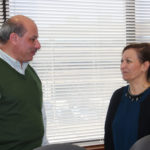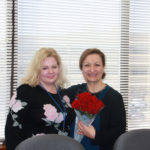Religious Education in a Diverse Society: Ta’aruf and Co-Existence
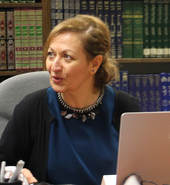
On Thursday March 16, 2018, Dr. Mualla Selçuk visited IIIT and gave a presentation entitled, “Religious Education in a Diverse Society: Ta’aruf and Co-Existence.”
Dr. Selçuk, a Professor of Religious Education at the Divinity School of Ankara University and the first Muslim president of the Religious Education Association, thanked IIIT for the opportunity to share her work and learn more about IIIT’s new education project Advancing Education in Muslim Societies (AEMS).
Dr. Selçuk gave a brief introduction to her research and collaborative work with a team of professors at Ankara University, developing a vision for [Islamic] religious education using the “open minds and devoted hearts” approach. The group examines the possible interactions and benefits gained if people of varied faiths sought to define themselves in relation to one another; the challenge of Religious Education today being: “how to deal with the differences, different faiths, different genders, race, disabilities, and so on.” Dr. Selcuk was inspired by the verse: “O mankind, indeed We have created you from male and female and made you peoples and tribes that you may know one another. Indeed, the most noble of you in the sight of Allah is the most righteous of you. Indeed, Allah is Knowing and Acquainted” (Qur’an 49: 13); thus the diversity of human beings is a gift from God that enables us to learn from each other. Through a shared learning process people can understand and contextualize the meaning of these differences, and through reflection find value in one another.
Dr. Selçuk believes in a developmental approach to religious education, structured in steps that correspond to the natural developmental stages of human beings. In childhood, for example, “there is curiosity and wonder about the world,” therefore teaching should stimulate children’s minds, open their eyes and feed their inquisitiveness and imagination. In adulthood, youth start questioning deeper issues which require a more logical approach to teaching. Schools should teach about religion – ethics, doctrines, faith, ritual, etc. – and from religion in order to support the development of identity in students, and teach them how to live peacefully with one’s own faith and others’.
According to Dr. Selçuk, there are two aspects to religious education: 1) the theology or content, and 2) the pedagogy or perspective and ways to approach the content. In religious education it is important to not only give information, but to instill formation, and to transform students by facilitating the internalization of knowledge.
Dr. Selçuk uses a teacher training framework called the Conceptual Clarity method. As a starting point, students are allowed to begin with their own understanding of religion based upon their experiences and what they have learned from home, family, community, school, society and the media, etc. This approach provides an open space to gain the students’ trust, allowing the discussion of more pressing issues. This progresses to the text and context relationship, and encourages students to ask themselves the question: What does God want to teach us from this concept? The Qur’an is the basis to teach the students what this text meant to the first people during the Prophet’s time. Building upon this, the next step is the developmental stage, where social science knowledge is integrated with religion to guide students in answering questions such as: What does it mean to respect the other, and to receive and take from the other? To what extent can I go with the other? The goal for this method is to explore the sacredness of life and the mutual respect for others through shared common values.
Finally, Dr. Selçuk gave a brief overview of the book published jointly by The Eugen-Biser Foundation in Munich and the Islamic-Theological Faculty at the University of Ankara. This reference is a lexicon of basic terms from Christianity and Islam in both German and Turkish, providing for the first time, a parallel presentation of two monotheistic religions in one work.
The presentation was followed by a discussion with the AEMS research team to further understand and explore potential collaboration.
Recommended Posts
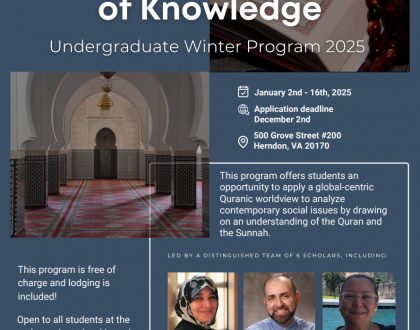
Integration of Knowledge (IOK) Winter Program 2025
August 23, 2024
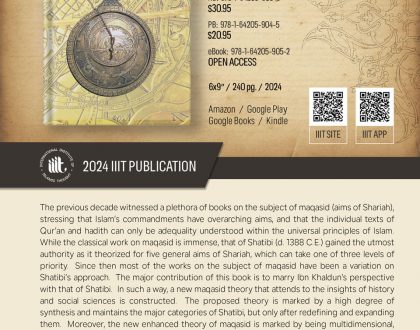
Maqāṣid Al-Sharīʿah: A Civilizational Perspective
August 17, 2024
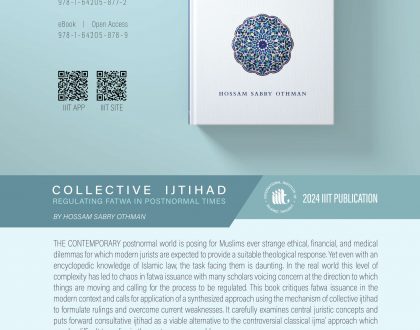
Collective Ijtihad: Regulating Fatwa in Postnormal Times
August 6, 2024

